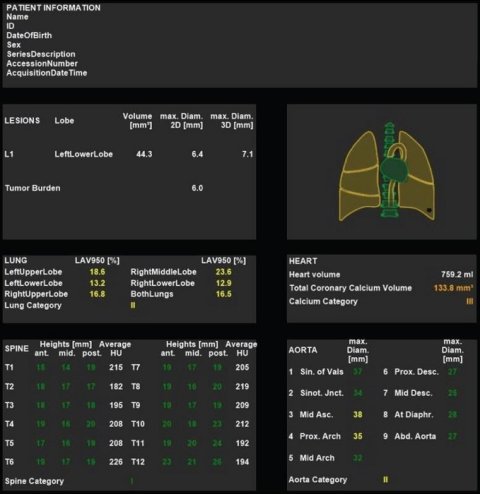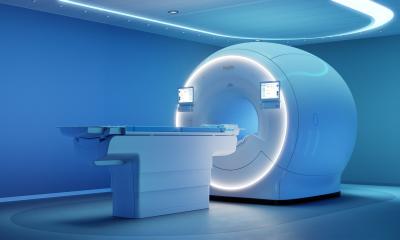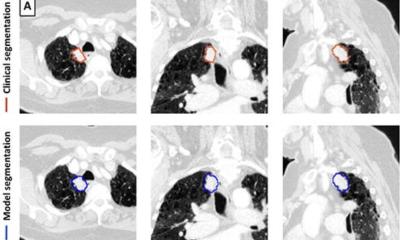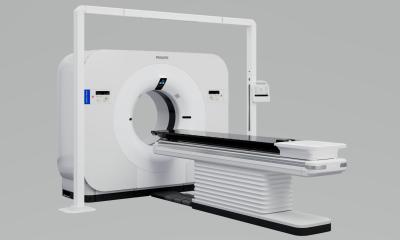News • Diagnostic imaging
AI saves one hour of daily chest CT interpretation time
Incorporating AI support into clinical practice can reduce repetitive tasks, saving approximately one hour of chest CT interpretation time in a radiologist’s typical workday.

“This is the first study to our knowledge to assess the impact of an artificial intelligence support platform on chest CT interpretation times in a real-world clinical setting,” corresponding author U. Joseph Schoepf from the Medical University of South Carolina (MUSC) noted. “The platform’s integration into clinical workflow resulted in a mean reduction in interpretation times of 22.1% among three cardiothoracic radiologists for whom the AI results were made available.”
Schoepf and colleagues’ prospective study included 390 patients (204 female, 186 male; mean age, 62.8 years) who underwent outpatient chest CT at MUSC from January 19–28, 2021. A commercial software solution, AI-Rad Companion (Siemens Healthineers, Erlangen, Germany), provided automated analysis of cardiac, pulmonary, and musculoskeletal findings, including labeling, segmenting, and measuring normal structures, as well as detecting, labeling, and measuring abnormalities. AI-annotated images and autogenerated summary results were stored in the PACS (IMPAX 6, Agfa Healthcare, Mortsel, Belgium). Chest CT examinations were randomized using 1:1 allocation between AI-assisted and non-AI arms, then clinically interpreted using a stopwatch.
Recommended article

Article • Cardiology & radiology
AI opens up boundaries between medical disciplines
Uwe Joseph Schoepf, Professor for Radiology, Cardiology and Paediatrics and Director of the Department of Cardiovascular Imaging at the Medical University of South Carolina, discusses areas of application for AI-based radiology. The cardiothoracic imaging expert and his team were largely involved in the development and early clinical trials of the Siemens AI-Rad Companion Chest CT, a software…
Ultimately, mean interpretation times were significantly shorter in the AI-assisted than in the non-AI arm for all three cardiothoracic radiologists. For readers combined, the mean difference was 93 seconds (95% CI, 63–123 seconds), corresponding with a 22.1% reduction in the AI-assisted arm: 20.0% and 24.2% for contrast-enhanced and non-contrast scans, respectively.
“If assistance from automated AI results can save one hour of interpretation time each day as estimated from our results,” the authors of this AJR article contended, “then radiologists could devote this time to other activities, whether additional clinical tasks such as communicating findings to patients and referring physicians, or administrative, education, and research responsibilities.”
Source: American Roentgen Ray Society
22.06.2022





